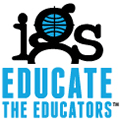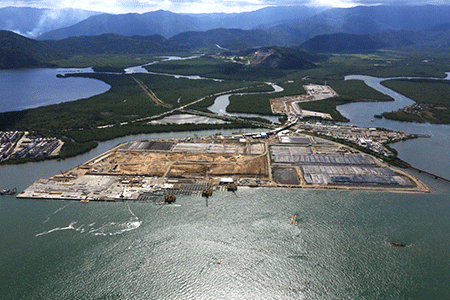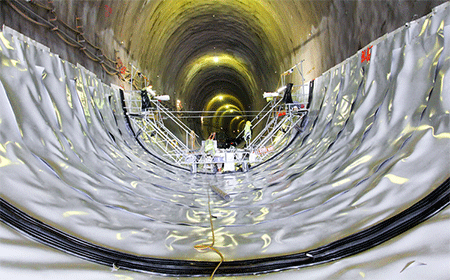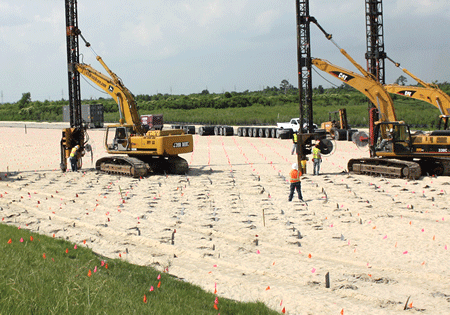




In the 1990s*, geosynthetic material development, polymeric research, and wide-scale manufacturing advances helped the field mature quickly. Regulatory support, such as the RCRA Subtitle D rule from the US EPA, contributed significantly to growth and encouraged outside investment. However, a knowledge gap existed because few people in influential positions (lead regulators, policymakers, facility owners, and professors) were aware of geosynthetics.
A non-commercial Educate the Educators™ (ETE) program was created. ETE events popped up and the results were substantial. Geosynthetic engineering provided a major growth area for geotechnical careers and the market grew substantially.
As testament to this, all major engineering firms now have designated geosynthetic experts on staff.
However, in the years since those initial ETE events, the responsibility for passing on state-of-the-art information regarding geosynthetics has fallen to college and university engineering programs, just as it has for other materials sectors. This has presented a new challenge to geosynthetics. The market has developed faster than the education required to pass on the knowledge.
In North America, for example, only 45 university engineering programs include geosynthetics education in their curricula.
IGS REVIVES EDUCATE THE EDUCATORS
The International Geosynthetics Society (IGS) has now revived Educate the Educators™. It has created a new non-commercial program, which multiple professional societies and organizations have signed on to sponsor (e.g., IFAI, Geosynthetic Institute).
The first session for this state-of-the-art, educator-focused geosynthetics ETE program will be held 28 – 29 July 2015 in Austin, Texas. Title: “Educate the Educators: A Geosynthetics Training Program for University Professors.”
APPLY ONLINE TO PARTICIPATE (via IFAI)
Participants of this program will be eligible to receive nearly all of the cost of attendance covered. Accepted applicants will be provided with hotel, meals, and transportation in Austin. Successful applicants will need only to fund their own travel to Austin.
The expected attendance cap in Austin is 40, so apply soon to be considered.
The program will provide core geosynthetics content, background information, and materials for use in the classroom so that participants may include geosynthetics in their engineering curricula. The event presents a single 50-minute class on geosynthetics for the undergraduate level; but it also provides a framework for additional class content and resources up to and including a graduate-level class on geosynthetics.
The sessions will be led by Dr. Richard Brachman of Queen’s University, Dr. Jorge Zornberg of The University of Texas at Austin, and field veteran Barry Christopher.
This round of Educate the Educators™ (ETE) is being conducted under the auspices of the North American Geosynthetics Society and supported by the International Geosynthetics Society (IGS), the Geosynthetic Institute, the Geosynthetic Materials Association (GMA), and other industry groups and companies.
APPLICATION NEEDS
Priority for participation in this limited seat gathering will be given to those individuals judged to have influence over the content of the programs at their respective institutions. Applicants should include:
- Copy of CV
- A short commentary on how you can include this content in your institution’s engineering curricula.
- List of courses you are responsible for
- List of relevant publications
Remember: space is limited to 40. Apply soon … then, share the word with your colleagues in education.
MEMBERSHIP REMINDER
Don’t forget to renew your membership to IGS in 2015! The IGS has more than 40 international chapters, 160 corporate members, and 4000 individual members. Events are held throughout the world to benefit the entire engineering community: regulatory agencies, manufacturing, private companies, education institutions, and all other affiliated geotechnical and construction groups that intersect the geosynthetics discipline. www.geosyntheticssociety.org.
* Thank you, Dr. David J. Elton, for helping us correct the original dates for the ETE’s start. (Earlier endeavors–in the 1980s–were not Educate the Educators™ events.












Sou pedagoga
Gostaria de contribuir com a formação de Educadores para geossintéticos na Universidade Federal de Minas Gerais.